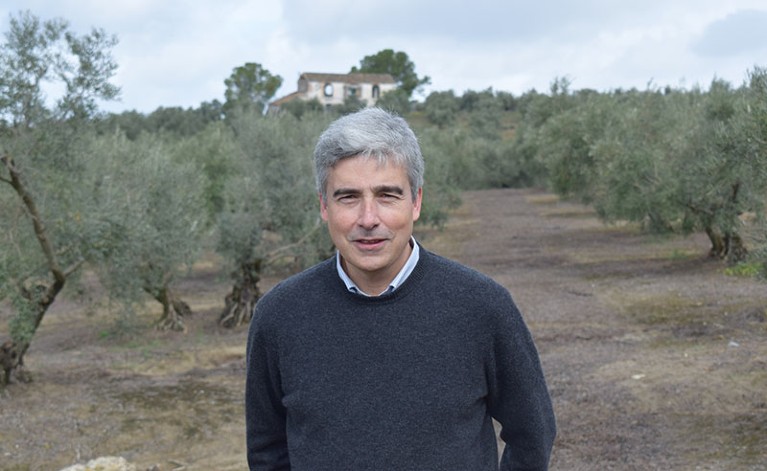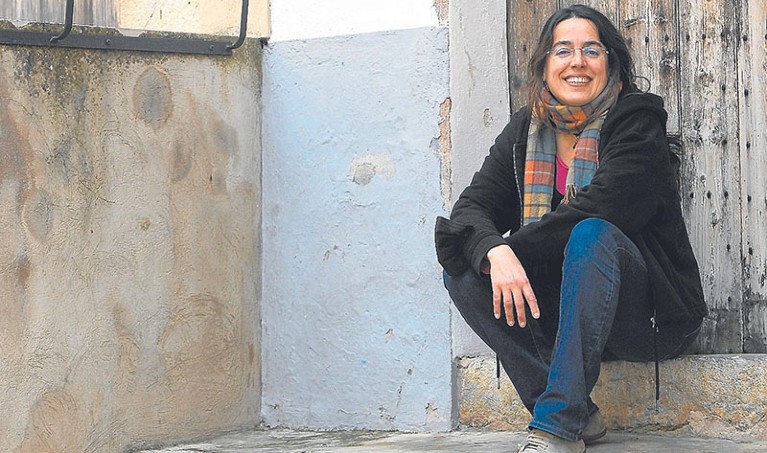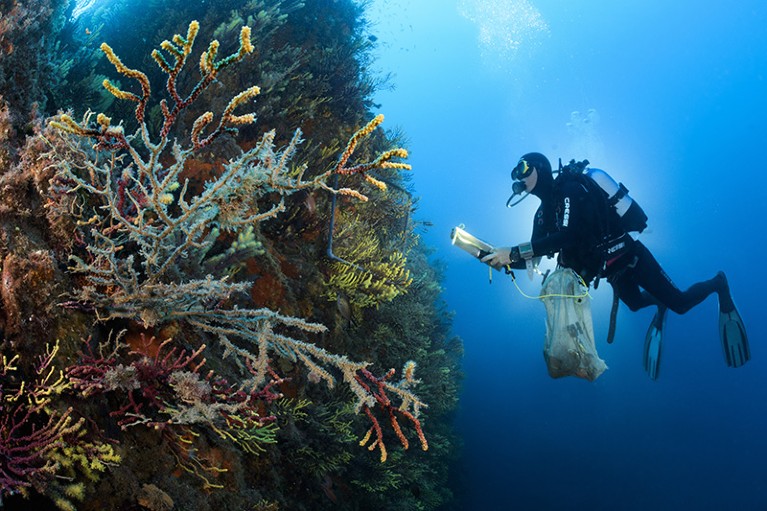Meet the researchers pioneering Spanish climate solutions
In October 2024, southern and eastern Spain were ravaged by flash floods and torrential rain. Some regions received more rain in a single day than they typically do in a year. The floods killed more than 200 people, displaced thousands and caused an estimated €3.5 billion (US$3.9 billion) worth of damage. It was Spain’s deadliest flooding in decades, and it was caused, in part, by climate change.
Spain is one of the most vulnerable countries in the world to the impacts of climate change. It is experiencing sharp rises in temperature, increasing 1.5 °C for every 1 °C the world warms. Precipitation is also expected to decline by up to 20% by 2050. These changes will affect every sector of the country’s economy, from agriculture to construction and tourism, as well as the nation’s terrestrial and aquatic ecosystems.
Nature spoke to four Spanish researchers about how their work has been affected by climate change, and their efforts to build resilience moving forwards.
IGNACIO LORITE: Develop short- and long-term solutions
Agricultural engineer at the Andalusian Institute of Agricultural and Fisheries Research and Training (IFAPA) in Córdoba, Spain.

Agricultural engineer Ignacio Lorite.Credit: José Manuel Cabezas
My family has grown olives for generations. I’ve seen first-hand the problems affecting the traditionally managed olive groves of southern Spain, and these issues are only becoming worse with climate change. Recurrent droughts and high temperatures reduce olive yield and quality, threatening rural populations that rely on growing olives for their economies. These climate-change impacts also affect other countries, because Spain is the largest supplier of olive oil in the world, producing nearly 40% of the global total, on
There’s a huge lack of knowledge about olive cultivation in future climatic conditions, especially in traditional or mountain systems, which are particularly vulnerable to climate change. I study how olive trees respond to water deficits, high temperatures and increased atmospheric carbon dioxide levels by mimicking these conditions in greenhouses in Córdoba, Spain, and seeing which adaptation measures might be successful. I also work with collaborators in the Canary Islands, which has a subtropical climate and warm winters, to explore why olive trees need cold temperatures during the winter to produce flowers.
Along with my field work and laboratory work, I help olive farmers to understand the impacts of climate change on olive production and to implement adaptation measures. My colleagues and I give seminars and practical field demonstrations about crop cover and irrigation management. These initiatives are funded by the regional government of Andalusia with support from the European Commission.
In addition to short-term strategies, I’m working on longer-term approaches to support sustainable olive production in the face of climate change. The World Olive Germplasm Bank, at the Andalusian Institute of Agricultural and Fisheries Research and Training in Córdoba, contains genetic material from 660 olive varieties across 29 countries. Part of my research focuses on identifying which olive varieties are most resistant to drought and heat stress.
My colleagues and I also ran models showing that areas further north will have better conditions for olive trees in the next 20 years, especially in terms of temperature. There are already some olive groves in the northern plateau of Spain, and even in France and Belgium, completely outside the typical cultivation areas. I help farmers to select areas that will be suitable for olive cultivation in the future and suggest alternative crops or cultivars that they can plant in their current groves.
Because there’s such a long history of growing olives in Spain, it can be difficult to ask farmers to replace their traditional practices with new technologies. But with climate change and the new weather conditions, they are being forced to change. Often, people just focus on the current conditions and the current market, but it’s important to prepare for 20 years from now as well.
CATI TORRES: Change the rules of the game
Ecological economist at the Interdisciplinary Lab on Climate Change at the University of the Balearic Islands in Palma, Mallorca, Spain.

Ecological economist Cati Torres.Credit: Isaac Buj
Climate change affects every sector of the economy. Here on the Balearic Islands, the summers are dry and hot, and these conditions will only get worse with climate change. The economy here is based mainly on tourism, and one of my lines of research focuses on how the tourism industry contributes to climate change, while also being highly vulnerable to it.
As temperatures continue to rise, tourists will be less comfortable here, causing them to visit during cooler months or travel to regions that are at higher latitudes. High temperatures also reduce environmental quality by causing biodiversity loss and reducing the area of beachfront, owing to sea-level rise.
Tourism trends have accelerated since the COVID-19 pandemic. Last year, the islands had a record-breaking 18 million visitors. Along with generating carbon emissions, tourists consume water, energy and other resources1. The residents import more than 85% of our food from the mainland and abroad, in large part to feed visitors. Tourism also increases traffic congestion and gentrification. These stressors drove many people in Spain to organize demonstrations against overtourism last year.
Some people suggest that we need fewer, but richer, tourists, but that would just perpetuate an unequal system. Furthermore, a person with a big mansion, an aeroplane and a boat has a much larger carbon footprint than does a less wealthy tourist. The government cannot keep building more roads, hotels and other infrastructure because that would use of lot of materials and create a lot of waste. It’s not sustainable.
As an ecological economist, I incorporate the laws and limits of nature into my understanding of our social economic system. The real cause of climate change is not emissions, it’s our social metabolism. People consume massive amounts of non-renewable materials when creating products and services, which in turn produce emissions and waste. This approach fits capitalism, which has a goal of economic growth. In Spain, tourism is a huge source of consumption and waste. In 2019, tourism accounted for 15% of Spain’s total carbon footprint2.
In mainstream economics, people are looking for solutions in green technologies, such as electric cars and solar power, but the production of green technologies generates lots of carbon emissions and is still limited by the availability of mineral resources. Solving climate change has to involve reversing the current socio-economic system. We need to forget about gross domestic product as a metric of social well-being. We need to imagine a different society in which we have values that take into the account human rights and the biophysical limits of Earth. That’s hard work. But if we don’t do it, we’re not going to make it.
JOAQUIM GARRABOU: Focus on supporting nature
Marine biologist at the Institute of Marine Science in Barcelona, Spain.

Tourists can cause damage to coral reefs.Credit: Jordi Chias
In 1999, I witnessed an unprecedented mass-mortality event of sea life in the Mediterranean Sea that was attributed to high temperatures. It hit the French and Italian coasts from Marseilles to Genoa, affecting about 30 species including corals, sponges and molluscs. I was doing my postdoc in marine ecology in Marseilles when it occurred, and seeing it convinced me to dedicate my research career to studying the effects of climate change in marine coastal ecosystems.
These mass-mortality events are especially hard on benthic species — organisms that live attached to substrate on the sea floor, such as corals, sponges and molluscs — because they cannot escape when the temperatures rise. Long-lived species, some of which have lifespans of up to 100 years, are now disappearing.
Over the past few years, I’ve seen some ecosystems in the Mediterranean completely change. Climate change is not the only driving force; there’s also overfishing, habitat destruction and pollution. I’m witnessing things now that I could never have imagined 25 years ago. Climate change is transforming beautiful, complex, highly structured communities into simpler ones dominated by just a few fast-growing species.

댓글
댓글 쓰기